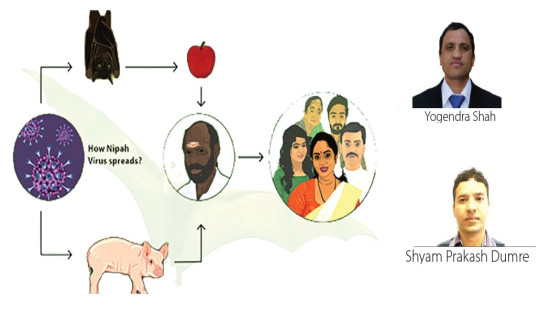- Saturday, 7 February 2026
Challenges After Graduation From LDC
Nepal is graduating from the LDC status to a developing country in November 2026. The criteria for graduation are per capita income, the human asset index (HAI) and the economic and environmental vulnerability index (EVI). At least any two of the criteria must be met to be eligible for graduation. Nepal met the HAI and EVI criteria in three successive triennial reviews in 2015, 2018 and 2021. Nepal itself refused to graduate to the status of a developing country in 2015 and 2018 owing to the impacts of the 2015 earthquake on the economy and the low per capita income.
When the resolution on graduating the country was endorsed by the United Nations General Assembly (UNGA), it had a per capita income of USD 1,027 against the required income of USD 1,222. Nepal agreed to the resolution on graduation unanimously adopted by the 40th plenary of the 76th session of the UNGA in November 2021. Nepal has got five years to prepare for graduation. The National Planning Commission has made the LDC Graduation Smooth Transition Strategy for unhindered and uninterrupted transition to the status of a developing country. This strategy is in line with the national vision of achieving good governance, social justice and prosperity.
Six strategic pillars
It includes six strategic pillars: macroeconomic stability; trade and investment; economic transformation; productive capacity; climate change and disaster risk management; and social inclusion. The strategy has been formulated with a view to making Nepal economically sound, socially inclusive and environmentally sustainable. The European Union, the United Kingdom and Turkey have provided Nepal with a transition period of three years after graduation. The country will have to face new tariff regimes in other preference-providing countries. Tariff increases in the US, Nepal’s largest export market after India, will, however, be low at 1.5 per cent.
Nepal and India have bilateral trade treaties. So there will be no effects on the trade with India. Nepal is engaged in the export trade with India at zero tariffs. Two-thirds of the country’s exports are made to India. When Nepal becomes a developing country in November 2026, it will be in the new domain of trade. As a result, the financial support the country has been receiving by virtue of being an LDC since 1971 will be gone. The funding from the UN group will come down. However, there will be minimal impacts on funding from the World Bank, the Asian Development Bank and most of the bilateral donors.
Nepal will have to face the loss of access to preferential markets owing to increased competition in the international market. This will affect export-oriented small and medium enterprises and the job market will also be affected. Export-based industries are fearful that they will lose markets for exports after graduation. When the Multi-Fibre Agreement (MFA) was abolished in 2005, the garment industry benefitting from the quota system provided by the US as per the MFA suffered a lot. With no benefits of tariffs under the General System of Preference, Nepal’s products will be more expensive vis-à-vis those of its competitors in the international market. This will adversely affect the country’s export sector. Exports to the European Union could decline by as much as 57 per cent for lack of preference.
Nepal could lose over four per cent of the exports owing to changes in tariff regimes. Tariff removal will affect the export business such as garment, synthetic textile and carpet sectors. Trade losses will have to borne in the export business with the European Union, Turkey and China. Nepal is already incurring the trade deficit owing to the high volume of imports. The export scenario is already bleak. Owing to high tariffs, the export sector will suffer further. So concrete measures will have to be taken to overcome the challenges in the export sector after graduation. Graduation is not only fraught with problems and challenges. Being a developing country will also generate several advantages.
As per the 2020 report on human development by the National Planning Commission and the United Nations Development Programme, graduation makes countries creditworthy in the eyes of international credit rating agencies. Graduation also facilitates access to commercial finance. After graduation, Nepal could send a positive message about its development prospects across the world, making it known to the world community about its potential for developing with a clean slate. The country could also project itself as a new destination for foreign direct investment (FDI) and other investments. Nepal has been enjoying FDI for years but the inflow of the investment is not up to the mark.
Targeted trade promotion
Nepal needs to formulate strategies for overcoming challenges that will come its way after graduation. The country ought to draw up plans for targeted trade promotion and market diversification. The gaping trade deficit should also be gradually reduced with a focus on export promotion and import substitution. Nepal is a SAARC member. There is a trade agreement called the South Asia Free Trade Area Agreement (SAFTA). Under the agreement, the country can expand its export trade. Further, the GSP+ mechanism of the European Union provides access to duty-free markets for up to 70 per cent of goods. The mechanism provides developing countries with special incentives to enable them to meet Sustainable Development Goals and maintain good governance.
Nepal can join the mechanism to reap trade benefits. If the country fails to join the mechanism, it can negotiate for the most favoured nation status. After graduation, Nepal should reap benefits being a developing country offers. It should unlock its trade potential by increasing and diversifying its export trade. The political environment should also improve. The political instability that has been the hallmark of the country for years should be eliminated forever. It is a golden opportunity for Nepal to march ahead on the path of development and prosperity.
(Maharjan has been regularly writing on contemporary issues for this daily since 2000.)

















